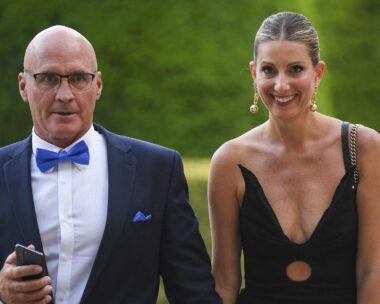The quickest way to lose weight is to cut out starchy carbs, right? Maybe not, says dietitian Susie Burrell.
Carbohydrate-based foods, such as pasta, bread and even starchy vegetables, have been deemed taboo on many a weight-loss diet.
The theory is that if you cut out carbs (the primary energy source used by the body), you’ll burn fat instead and weight will literally fall off you. Unfortunately, like so many things in life, it’s not that simple.
Related: Why obesity is not your fault
Let me explain. Plant-based foods, including bread, rice, grains, fruit, starchy vegetables, as well as sugars, are primarily made up of carbohydrates.
Carbohydrate, one of the four energy-giving nutrients along with protein, fat and alcohol, provides 17kJ or 4 calories per gram.
Once one of these foods is eaten, it is broken down into glucose. This glucose is then used as fuel. Any glucose that is not used as fuel will be stored for later use.
Put simply, if you eat less carbohydrates, you’ll store less. However, over time, the body will simply reduce its metabolic rate in order to ensure the glucose that is available is used more efficiently.
Bottom line — you’ll need to eat less in order to burn the same number of calories.
The problem with low-carb diets
Have a chat to anyone who has ever gone on a low-carb diet and see how they fared.
Chances are they lost large amounts of weight, only to put it back on again when they allowed carbs back into their lives.
Since most people enjoy their carbs, cutting them out is generally not sustainable.
What would make more sense is to be smart about the type of carbohydrates you choose to tuck into, exactly how much you knock back and at what time you do so.
White bread, rice, processed cakes, biscuits, lollies, fruit juices, soft drinks and potato chips tend to be the type of carbohydrate foods most commonly chosen, but these types of processed carbohydrate are also digested rapidly and offer little nutritionally.
All in all, not such great choices. You see, rapidly digested carbohydrates or high GI carbs result in a relatively large amount of the hormone insulin being secreted.
Over time, this large amount of insulin will cause weight gain. And here’s where it gets really ugly.
Your body will then store fat, which will further reduce the ability of insulin to do its job and, suddenly, you’re looking at a cycle of weight gain and more insulin being released to compensate for it.
So, what to do?
First, let’s look at where we are today. The average Australian consumes a predominately high GI, carbohydrate-based diet.
Processed breakfast cereal and white bread toast are common breakfast choices, along with fruit and yogurt.
We then snack on fruit, crackers and muesli bars, followed by a lunch based around bread or rice.
Follow this with a pasta, rice or potato-based meal at night and your dietary intake sits at 50 to 60 percent total carbohydrate.
Now, these choices may be “healthy” and even “low fat”, but are proportionally too high in carbohydrate to support glucose and weight control long term.
The solution? Ensure the carbohydrate- rich foods you enjoy are the best quality, low GI carbohydrates available.
Everyone’s different, but teaming a carbohydrate-rich food with a protein-rich food at each meal is a good start.
Related: You’re not getting enough vitamin D
It’s also a good idea to keep your intake of heavier carbohydrate foods, such as pasta and rice, lower at night when you tend to be less active.
A one-off treat or carbohydrate-based meal is not what makes us gain weight. It is our choice of breads, grains and snacks on a daily basis that determines our weight and health long term.
Read more of this story in the June issue of The Australian Women’s Weekly.

Video: Why you need more good carbs




